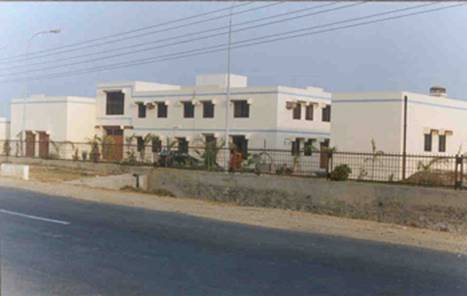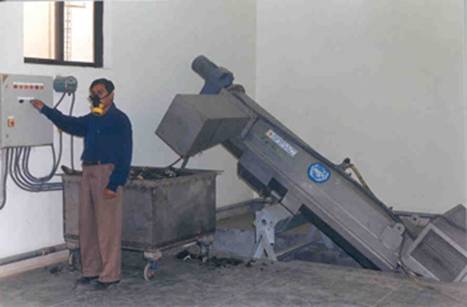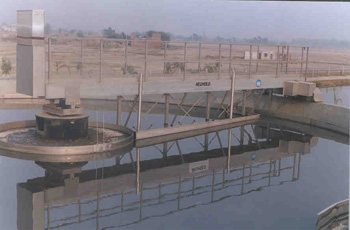
KTPCP is located in Kasur in an area of tannery clusters where more than 200 leather
tanneries are operating. The average daily input of all tanneries in Kasur is estimated
to be over 180 tons of wet salted weight, comprising some 8,000 hides (cattle, buffaloes),
and between 12,000 and 15,000 skins (sheep and goats) per day. 13,000 m3 of heavily
polluted tannery wastewater are coming from the three tannery clusters per day and
are sent to the small river Rohi Nullah. Every year, an estimated amount of 4,000
tons of BOD5 11,000 tons of COD, 10,000 tons of suspended solids, 160 tons of chromium
and 400 tons of sulphide are discharged to the environment. In order to reduce this
high level of pollution, a common effluent treatment plant project was elaborated
with the UNIDO/UNDP assistance.

This project has established an effluent treatment plant, chromium recovery plant,
and solid waste disposal site and management system. The US$ 10 million cost-sharing
project is designed to clean the most polluted town in the country and will serve
as a model to be replicated for other tannery clusters in Pakistan. The partners
in this project include the Provincial and Federal Government, Export Promotion
Bureau, Private sector, UNDP and UNIDO. The Project is also helping institute cleaner
production technologies in the tanneries to improve health, safety, environment
and the economics of tanneries. The operations and maintenance of KTPCP is presently
in process of being taken up by local authorities including the private sector;
the plant operations are to be funded on a "polluter-pay" principle. The project
is also addressing social dimensions in Kasur including child labor, health aspects
and gender.
